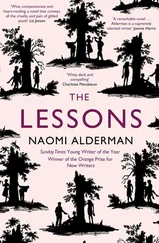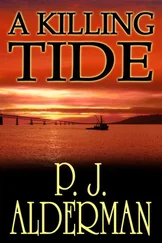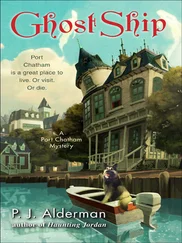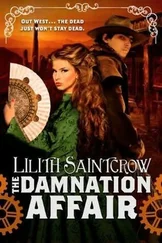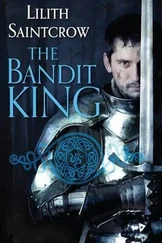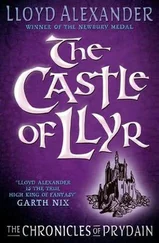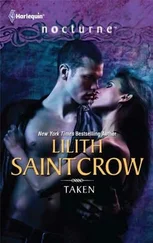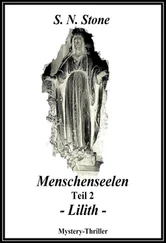She heard the gentle laugh of the horse again and, again, it puzzled her.
‘What is that place?’ she asked. ‘Is it another plain?’
The voice of the Horse, busily talking like a dream-voice in the very centre of her head, was even and affectionate.
‘It is a plain, of sorts,’ he said, ‘but it is made of water. Men call it the Ocean. It rolls between the worlds, too deep and cold to swim across. It is ruled by the moon, which pulls its waters first one way, then another. Such movement is called a tide; and those rolling hills you see in the water are waves. In a moment – there! – one will arrive and break in pieces on the shore.’
Gry watched the waves surge up the beach.
‘The Ocean is like a huge river,’ she said. ‘River-water also turns to mist when it hits rock.’
‘You are a wise woman.’
‘I? – I know little beyond the Plains. But you are a wise horse. How can a Plains horse, though he is the Horse, know so much?’
‘I have heard many tales,’ the Horse muttered evasively.
‘In Garsting? When Nandje rode you?’
‘My ancestors had the wisdom of centaurs.’
‘Of sentries?’
‘Centaurs. Mythical beasts, half-man, half-horse. You know, Chiron – of course, you would not … Come, Gry, muffle your face in the scarf you have made of your seductive skirts, blue as eyebright in the grass! We shall soon be on the shore and the wind will try hard to fill your mouth with grit.’
Obediently, she wrapped her head in the torn cloth. The smell of the sea caught her by the throat, frightening and exciting her. The Horse’s hooves drummed on the rippling watermarks and the wind, as he had promised, blew salt sand in her face and filled her eyes with tears.
It was a lonely place. The sands ran on for ever, combed and billowed by the sea and the land curved gently down on left and right; but ahead, where she was being carried, there was nothing but the glinting water with its random spouts and crests of white spray; and that water made roaring, dragging sounds which deafened her and filled her head and senses so that, though he was speaking, she could not hear what the Red Horse said. Strange plants grew in the sand, stiff like trees made of glass, their tiny branches broken. Fresh cloven hoofmarks crisscrossed and surrounded them, for the sheep had been feeding here.
The wind got inside her thin clothing and chilled her to the bone. They forged on, the wolf pushing himself forward with all his might, his fur blowing wildly about him.
‘Where are we going?’ she cried into the din. ‘Over the edge of the world?’
The Horse was shouting too, a whisper in her mind.
‘Almost! Look ahead.’
The waves were roaring louder than a thunderstorm. Gry wiped the wind and water from her eyes. It was hard to see. The water tossed up its countless heads. Something stood there, firm in the spray, a giant or a mighty beast of the spume. It reared high and held out stiff limbs. Gry wiped her eyes again.
It was a great tower, stripped of any skin or covering it might once have had, a rusty, metal skeleton many times taller than a forest tree.
‘Russet Cross!’ the Horse shouted. ‘What a structure!’
‘Russet Cross?’ she echoed, and scarcely heard herself, scarcely believed it. An awful thing, she thought, like the shaman, Aza’s, house which was no house but a grassy hollow in between the hills. Or like Wolf’s Castle, no castle but stones piled up by the spirits themselves: as this storm-blasted tower, she supposed, had been built and wrecked.
The Red Horse stopped at the water’s edge, Mouse-Catcher sheltering, ears down, beneath his belly; both of them gazing at the metal monster.
‘Russet Cross,’ Gry repeated. ‘What is it?’
‘A misplaced memory, a meeting place,’ the Horse replied. ‘The point at which the winds and the waters meet. Where spirits howl together and pass on their voices to those who must hear.’
‘Mogia wanted me to come here?’
‘She had her good reasons, Gry. The water is not deep at this state of the tide,’ said the Horse calmly and, for the first time, Gry heard the wolf’s answer, an audible shadow in her mind,
‘Deep for me. Terrible for the warm land-She.’
The Horse walked into the water. Gry clung tight, looking down, horrified as each wave rose and threatened to engulf him and her clinging self, and passed them by to be succeeded by another just as great. Nothing was steady now, nothing sure. The good ground had vanished; in its place, the treacherous, moving water.
The wolf, who had remained behind, spoke in his throat, neither whining nor growling: ‘Rurr – rrr – rurr!’ And, having voiced his opinion, followed them.
They soon reached the nearest limb of the tower. A stairway hung from it, giddily down to touch the water.
‘You must climb it, Gry.’
‘I can’t – Red Horse – I can’t. How can you climb stairs?’
‘I shall wait here, up to my withers in sea water. Mouse-Catcher will go with you so there is no need for fear.’
‘It is high; I can’t tell how high!’
‘Fear not, trust me. You won’t fall – look, there is a rail.’
There it was, a handrail looping and scrolling at the staircase-side, though she had not noticed it before. She reached out and took hold of it. The Horse was warm beneath her. Wasn’t she well-used to climbing trees at gathering-time, when the women journeyed across the Plains to pick a harvest of nuts and berries from the trees at the forest-skirt, and mushrooms, toadstools, puvush-cushions, puff-balls and spirit’s saddles from inside the forest itself? The stair looked firm. She swung suddenly on to it, climbed two steps and looked down. The Horse was afloat already, solid, glossy, alive in the cold, wet Ocean, his tail fanned out like weed behind him. Mouse-Catcher was swimming too and his ears were up. She tried to be brave.
‘Goodbye, dear Horse!’ she called.
‘Climb, my sweet Gry! I shall soon welcome you back.’
Thirty steps, and she was in translucent cloud, chasing raindrops and rainbows as she climbed. She felt the wolf behind her, hairy, soaking wet, and then his nose against her hand, comforting her. The rust-coloured limbs of the tower bent about and enclosed them as they climbed. Thirty steps more: her head was above the mist, in sunshine. She looked up and saw, flying on the tower-top where two metal beams made a huge, jagged cross, the blue flag of her people, the Ima of the Plains. Its fluttering challenge stirred her heart and she climbed more rapidly, passing through a circular doorway in the floor of a rickety platform. The nose of the wolf touched her hand once more.
A table had been placed there, far above the sea, a table set for a feast. The guests were waiting for her and two stools were empty. She crept forward, wary and reassured by turns for the other feasters were dressed like her, in tattered indigo and skins. The wolf at her side began to moan quietly, in that midway voice: ‘Rurr – rrr – rurr.’
The old ones had been sitting a long time, wind-dried and wizened in the eye of the sun, neither on the land nor in water, each one salt as grief and dead as stone.
Gry buried her fingers in Mouse-Catcher’s thick mane and looked at the circle of shamans. They were fearsome, shrunken like trophy-heads, preserved but loathsome like the food on their plates, withered plums, black slivers of meat and grey heaps of mulberries. The skulls of some were visible through leathery pates, under wisps of hair; from others, the fingers had dropped and these lay on the table among the dishes. They wore creased robes of balding stuff which had once been good horsehide, and were hung about like Aza with necklaces of birds’ skulls, thunderstones, claws and bones; a circlet of wood, which had been a drum, was propped against the foot of one; another had lost its nose although its lips had dried into two hard ridges which were pinched together in disapproval.
Читать дальше

